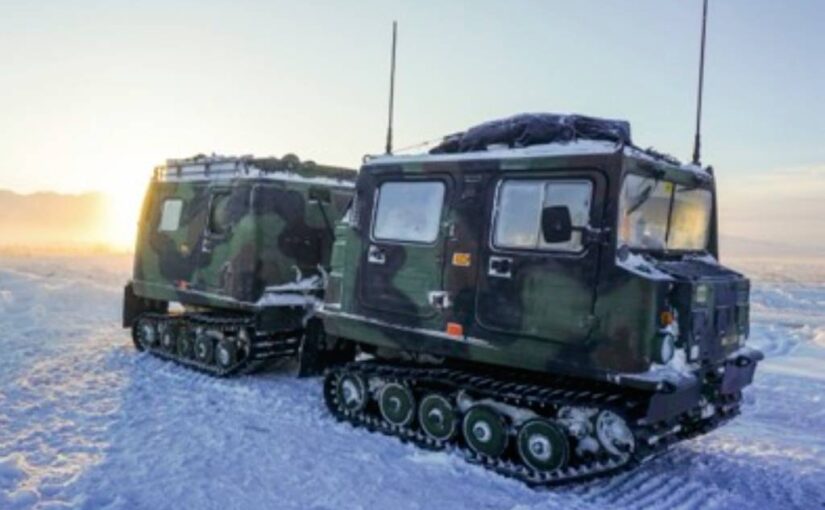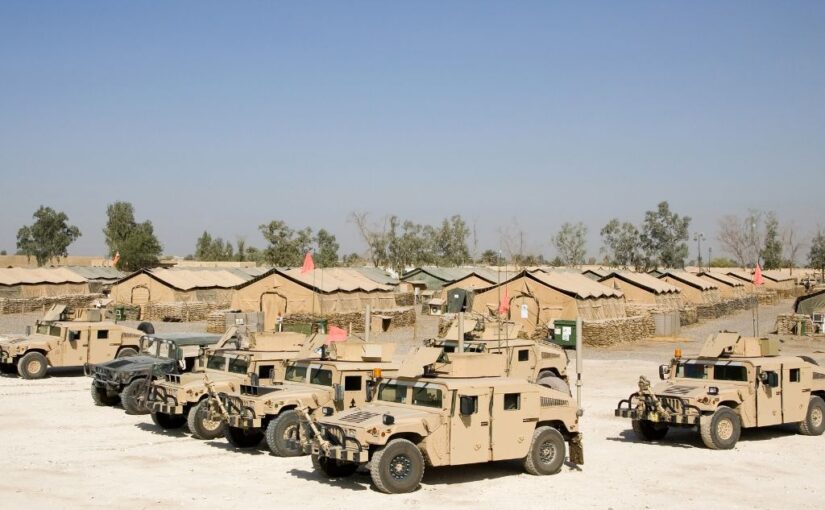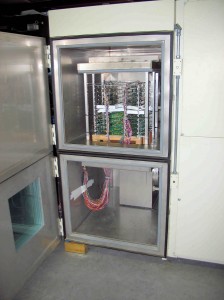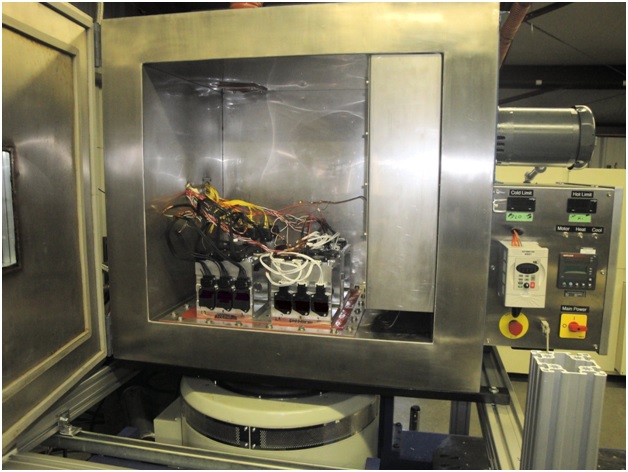MIL-STD 810, Method 502 Low Temperature Testing is used to evaluate the effects of low temperatures on cold storage, operation, and manipulation. Method 502 is applicable for testing products that will be exposed to cold temperatures during their life cycle. The latest revision is Method 502.7 from MIL-STD-810H.
MIL-STD-810 low temperature testing is not intended to simulate a high altitude, low temperature environment associated with an unpressurized aircraft at altitude. However, it may be used in combination with Method 500.6 to simulate a high altitude, low temperature environment.
Some of the Effects of Low Temperature Environments are:
- Hardening and embrittlement of materials.
- Binding of parts from differential contraction of dissimilar materials.
- Loss of lubrication and lubricant flow due to increased viscosity.
- Changes in electronic components (resistors, capacitors, etc.).
- Changes in performance of transformers and electromechanical components.
- Stiffening of shock mounts.
- Cracking, change in impact strength, and reduced strength.
- Effects due to condensation and freezing of water in or on the materiel.
Method 502 Has Three Procedures Starting with Low Temperature Storage:
- Procedure I – Storage. Procedure I is used to evaluate products that are stored at Low temperatures. After the Low temperature storage test is completed, an operational test at ambient conditions is performed.
- Procedure II – Operation. Procedure II is used to determine how well an item will operate in low temperature environments. Operation during this procedure assumes minimum contact by personnel.
- Procedure III – Manipulation. Manipulation is used to investigate the ease with which the materiel can be assembled, operated, and disassembled by personnel wearing heavy, cold-weather clothing. In addition, this could also include maintenance procedures.
Low Temperature Test Parameters and Procedures Under MIL-STD-810
First, identify the Low temperature test parameters and applicable procedures. DES can help determine the appropriate low temperature test conditions based on the equipment’s intended use. Consider the following cold temperatures in various world-wide locations from Table 502.7-I. (MIL-STD-810H):
| Design Type | Location | Ambient Air Temperature oC(oF) | Induced Environment Temperature (Storage & Transit) oC(oF) |
|---|---|---|---|
| Basic Cold (C1) | Most of Europe; Northern contiguous US; Costal Canada; High-Latitude coasts (e.g., southern coast of Alaska); High elevations in lower latitudes | -21 to -32 (-5 to -25) | -25 to -33 (-13 to -28) |
| Cold (C2) | Canada, Alaska (excluding the interior); Northern Scandinavia; Northern Asia (some areas), High Elevations (Northern and Southern Hemispheres); Alps; Himalayas; Andes | -37 to -46 (-35 to -50) | -37 to -46 (-35 to -50) |
| Severe Cold (C3) | Interior of Alaska; Yukon (Canada); Interior of Northern Canadian Islands; Greenland ice cap; Northern Asia | -51 (-60) | -51 (-60) |
The recommended test duration from MIL-STD-810H is four hours after stabilization for nonhazardous or non-safety-related (non-life-support type) material. Munitions, rubber and plastics may continue to deteriorate following low temperature stabilization. For these items, a minimum duration of 72 hours following temperature stabilization is recommended. For restrained glass, ceramics, and glass-type products (such as those used in optical systems, laser systems, and electronic systems) a minimum storage period of 24 hours following temperature stabilization is recommended.
Advantages of MIL-STD-810H Low Temperature Testing with DES:
DES excels in MIL-STD-810H Low Temperature Testing. With our lab’s accreditation and equipped with advanced temperature chambers, we ensure your equipment meets the cold-weather performance standards required by MIL-STD-810H. Some of the reasons that DES is trusted by many companies for MIL-STD-810H Low Temperature Testing are:
- DES has extensive experience running MIL-STD-810 Method 502.7 Low Temperature tests
- DES’s lab is A2LA accredited to MIL-STD-810, Method 502 Low Temperature Testing
- DES is trusted by many military manufacturers to perform their testing
- DES has numerous temperature chambers capable of performing MIL-STD-810 Low temperature compliance testing
Contact us today to discuss testing your product in our MIL-STD-810 accredited Test Laboratory.




